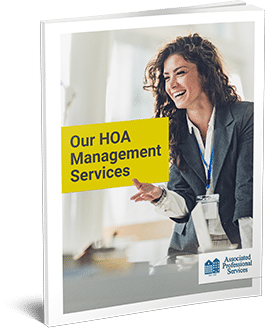As the number of homeowners associations (HOAs) continues to rise, so does the complexity of managing these communities....
What to Know About Opening an HOA Bank Account

Both smaller and large associations have their respective obstacles to overcome when it comes to managing money, whether it’s figuring out how to battle outstanding assessments or knowing how to navigate the payment of a loan.
It’s important that administrators are familiar with their community’s banking practices, and know how to keep their operating funds safe and accessible while still taking care of their reserve and operating funds.
Understanding the Purpose of an HOA Bank Account
The primary purpose of an HOA bank account is to manage the association’s finances, including collecting assessments from homeowners, paying bills, maintaining reserves, and funding community projects. It acts as a centralized repository for all financial transactions related to the HOA.
Before you can open an HOA bank account, you’ll need to gather a variety of documentation to verify the legitimacy of the association. These documents may include the HOA’s Articles of Incorporation, Bylaws, Federal Tax Identification Number (EIN), and any other legal documents specific to your jurisdiction. The bank will require these documents to ensure compliance with their regulations.
Once you’ve opened the accounts, it’s crucial to keep HOA funds separate from personal funds. Commingling funds can lead to legal complications and challenges in tracking and reporting finances accurately. Maintaining a clear distinction ensures proper accounting and auditing procedures can be followed.
The Two Types of Bank Accounts an HOA Should Have
Typically, an HOA opens two financial accounts: an operating (or checking) account; and a reserve (or savings) account.
An operating account is a financial fund that’s used to pay for the services that carry out everyday functions of a community. These accounts are typically opened by the management company on the association’s behalf, but the Board members should be listed as signers and updated when there is a Board change. Services that are usually covered by an operating account include:
- Contracted services, including landscaping, general maintenance of common areas, security, and property management
- Insurance and taxes
- Utility expenses, including plumbing, heating, and cooling of common area buildings
- Office expenses, including postage and office supplies
- Accounting and legal fees
A reserve account is a designated savings fund established by the association to cover forthcoming maintenance expenses and unforeseen costs within the community. To safeguard these funds, it’s crucial for the board to regularly contribute to or withdraw from them. Failure to do so could result in the funds being turned over to the state due to prolonged inactivity.
In California, Boards are required to have two signers on the reserve account and any transfers over $10,000 also require two board members to authorize. Unexpected costs that are covered by reserve accounts include:
- Roof replacement on common area buildings
- New pump at the community pool
- New playground equipment at association’s tot lot
- Painting of common area buildings, such as the community clubhouse
- Major landscaping projects
- Construction and major renovations
Managing Your HOAs Finances & Accounts
Generally, the financial records of an HOA should be accessible to both the board and the managing agent. An HOA usually appoints a treasurer with financial expertise, while larger associations often establish a dedicated finance committee. It is advisable for a board representative to review invoices, monthly financial reports, and establish expenditure limits.
Regardless of the number of accounts, implementing a checks-and-balances system for financial decision-making is essential. Many accountants recommend that for withdrawals exceeding a specified amount, a minimum of two individuals should provide approval. In numerous cases, check signing should involve two signatories, such as a board member along with the manager or the president coupled with the treasurer.
If you’re looking for an experienced HOA management company to help you with your finances and accounting, APS Management can help. Take a look at our HOA management services or contact us for a consultation.




